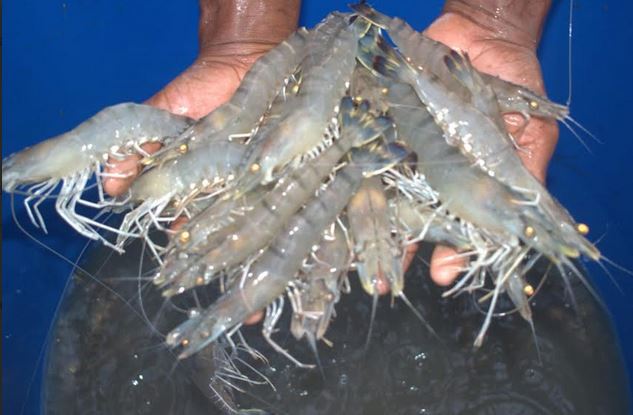News Flash
News Flash

By S M Zahid Hossain
KHULNA, Feb 9, 2025 (BSS) - Synbiotic technology, a combination of prebiotics and probiotics, appears to be a boon for many shrimp farmers as it increases climate-tolerant shrimp production to almost double or more in the region.
A research found that the technology improves shrimp farming environment and water quality, kills harmful bacteria, increases beneficial bacteria, enhances immunity and boosts production.
It is fed to shrimp along with food as it is also applied in water of shrimp farm, proving to be very effective and efficient in shrimp farming.
The feed conversion ratio (FCR) of feed is lower resulting in a lower cost of production, the research said, adding that the technology is widely used in India, Thailand, China, Vietnam, Korea and Malaysia.
With the financial support of the Sustainable Coastal and Marine Fisheries (SCMF) Project Grant Window-1 of the Directorate of Fisheries, Dr Sayed Hafizur Rahman, Professor of the Department of Environmental Science of Jahangirnagar University conducted the research programme.
The research was based on "Synbiotic technology for increasing shrimp production and its health and disease prevention in the coastal region of Bangladesh by combating the effects of climate change".
Assistant Professor Dr Asaduzzaman Manik of Khulna Agricultural University was the co-researcher. The research has been conducted in 18 ponds in Khulna and Bagerhat districts.
The main objective of the research programme was to develop sustainable shrimp farming technology to cope with the impacts of climate change.
Internet-based weather stations were set up during the study to obtain weather information. Internet-based data logger was used to know water quality.
Analyzing the data of the study, the results appeared to be very promising.
Bagda (Tiger) shrimp is a GI product of Bangladesh. It is known as white gold in the country. Khulna, Satkhira, Bagerhat, Chattogram and Cox's Bazar districts in the country's South and Southwest coastal districts are potential areas of Bagda Shrimp production.
Currently, over 1, 37,000 metric tonnes of Bagda prawns are produced in about 1, 91,000 hectares of land in the country. Using of Modern technology can double shrimp production.
The coastal region of Bangladesh is mostly damaged due to global climate change. The climate and biodiversity of the region are changing drastically, increasing temperature, erratic rainfall, and salinity, creating risks in shrimp farming.
Abnormal changes in the physical and chemical properties of water are occurring, that negatively affects the life cycle of shrimp and other aquatic organisms.
As a result, the normal growth of shrimp is disrupted, the immune system is reduced, and new diseases are being transmitted, which sometimes appear in epidemic form. The cost of production of the farmer is increasing but the desired profit is not being achieved.
Contacted, farmers Kaushik Bagchi, Sujit Mondal and Shuvendu Biswas involved in the research told BSS that production in ponds using synbiotics has increased by 25-30 percent last year.
The prawns are very shiny and healthy, their weight has increased and no disease transmission has occurred, they said.
A variety of minerals and food costs have reduced by 20 percent, as the profit has increased by 25-30 percent.
Along with Kaushik, neighbouring farmers have a keen interest in farming Bagda shrimp through using symbiotic technology.
Talking to BSS, Saroj Kumar Mistry, sub-project director of the SCMF project said, "The research finds increased production of Bagda shrimp creating enthusiasm among the farmers. If it can be disseminated at the field level, positive changes can be made in the shrimp sector."
Despite the vast potential of shrimp production, various problems caused by climate change are severely affecting its production and cultivation.
Mistry said the technology may help solve these problems and bring new hope for shrimp sector in the country.